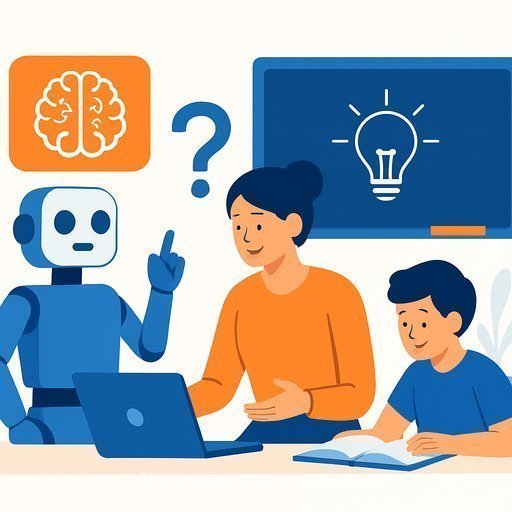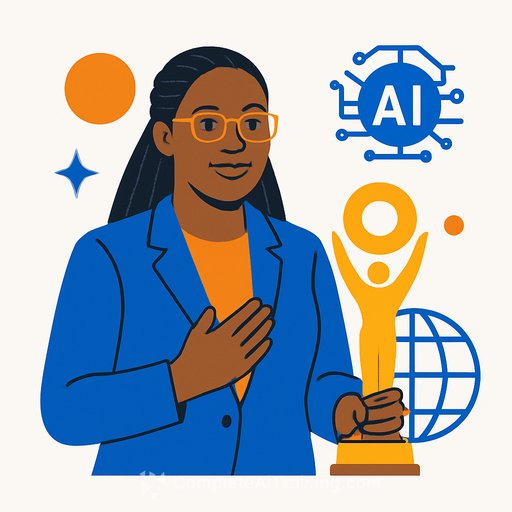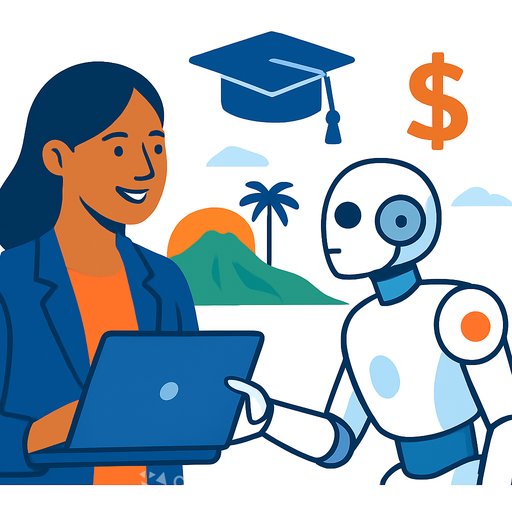HP Futures Report Calls for a Global AI in Education Charter: What Educators Need to Know
A new 2025 HP Futures Report urges national governments to adopt a mandatory global AI in Education Charter to guide ethical, safe, and effective use of AI in classrooms. Produced by the Global Learning Council, T4 Education, and HP, the report lays out clear standards schools can act on today.
The recommendations will be presented to education ministers at the World Schools Summit in Abu Dhabi on Nov. 15-16. The core message: build responsible, equitable AI-driven learning environments that prepare students for the future of work.
Why this matters now
AI is already part of student workflow. In a survey of 2,860 students across 21 countries, more than 60% said they use AI daily for research, and 71% support placing limits on AI capabilities in education.
That mix-high usage and demand for guardrails-makes clear policy non-negotiable for school systems.
What the proposed Charter would require
- Vendor proof of strong data privacy protections and security controls.
- Guaranteed learner data ownership and transparent data practices.
- Environmental sustainability criteria for AI tools and infrastructure.
- Specific safeguards for minors and a ban on exploitative practices.
Design principles for responsible AI in schools
- Adopt inclusive strategies so benefits reach every learner.
- Provide baseline access to core large-language-model services for schools.
- Ensure AI augments, not replaces, teachers and support staff.
- Consult educators in AI tool development and rollout.
- Define clear instructional objectives before adopting new tools.
- Preserve productive "friction" in learning to build judgment, resilience, and job readiness.
- Commission national AI-readiness baseline surveys to track progress.
- Keep policy adaptable so it can respond to new evidence and classroom realities.
Voices from the initiative
David McQuarrie, chief commercial officer at HP and chair of HP Futures, emphasized that effective outcomes depend on responsible adoption-AI can deliver personalized, high-quality learning at scale only if guardrails are in place.
Mayank Dhingra, director and global head of education business and strategy at HP and project lead for HP Futures, urged policymakers to prioritize educators and students in implementation programs.
Vikas Pota, founder and CEO of T4 Education, noted that AI will be central to preparing every child for the workplace of tomorrow.
What school and system leaders can do now
- Set clear AI use policies for students and staff, including acceptable use, privacy, and academic integrity.
- Adopt a vendor checklist covering data privacy, data ownership, model transparency, security, and environmental impact.
- Pilot AI tools with small cohorts; measure outcomes like learning gains, teacher time saved, and student agency.
- Build professional learning pathways so teachers can integrate AI into planning, feedback, and differentiation.
- Design assessments that require process evidence and reasoning, reducing overreliance on generative outputs.
- Include teachers, students, and guardians on an AI advisory group to surface risks and equity gaps early.
- Map AI to curriculum goals first; choose tools second.
- Publish a transparent impact report each semester to sustain trust.
Policy to practice: a short checklist
- Governance: name owners for policy, procurement, and classroom implementation.
- Data: require Data Protection Impact Assessments and student data access logs from vendors.
- Equity: guarantee device and connectivity access for AI-supported tasks.
- Safety: enable age-appropriate modes, content filters, and opt-out options.
- Sustainability: consider energy use and lifecycle when procuring AI services.
Where to learn more
For context on the organizations behind the recommendations, visit Global Learning Council and T4 Education.
If you're planning staff development on AI literacy and classroom practice, explore role-based course paths at Complete AI Training.
The takeaway is straightforward: AI is already in students' hands. This Charter aims to make sure it serves learning, protects young people, and strengthens the work teachers do every day.
Your membership also unlocks:






